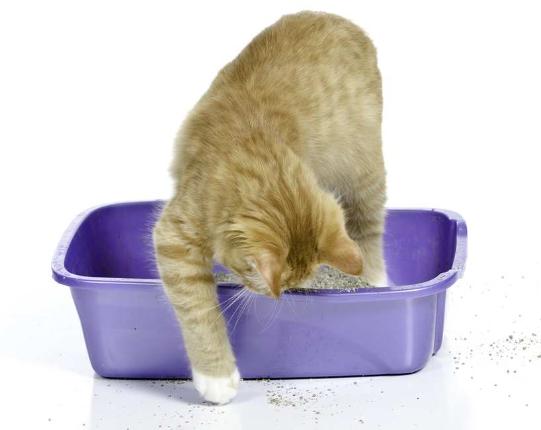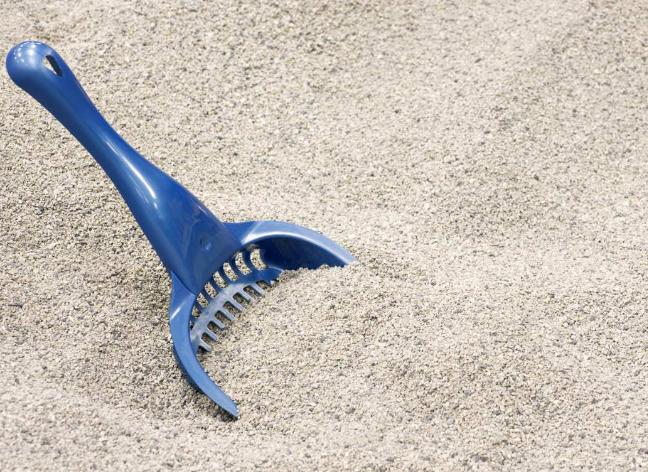How to Make a Cat Litter Box Not Stink: 4 Effective Tips
Managing litter box odors is a common challenge for cat owners, but it doesn’t have to be a constant struggle. Bad smells from the litter box can affect the freshness of your home and lead to discomfort for both you and your pet. Fortunately, there are simple, effective ways to control these odors. Learning how to make a cat litter box not stink involves choosing the right litter, keeping up with regular cleaning, and making a few easy adjustments. In this guide, we’ll explore four practical tips that will help stop litter box odors and keep your home smelling fresh.

Why Does My Cat’s Litter Box Smell?
Common causes of litter box odors usually stem from waste buildup, but there are several other contributing factors. Urine, with its strong ammonia scent, can become overpowering if the litter box isn’t cleaned regularly. Feces left in the box for too long can also create foul smells, especially in warm environments. When the litter isn’t replaced frequently, it can become saturated, losing its ability to absorb moisture and odors effectively. Bacteria and mold growth can develop if the box is not properly maintained, worsening the smells over time.
Additionally, your cat’s habits play a significant role in how quickly odors develop. Cats that drink a lot of water or have medical issues like kidney problems may produce more urine, which contributes to stronger smells. Some cats may not bury their waste properly, allowing odors to escape more easily. The more frequently your cat uses the box, the more often it will need to be cleaned to prevent odors from building up.
How Often Should You Change Cat Litter?
Keeping the litter box clean and fresh requires regular maintenance, but knowing how often to change the litter can make a big difference in managing odors.
Best Practices for Daily Scooping
Scooping your cat’s litter box daily is essential to prevent odors from taking over your home. Removing waste regularly stops the buildup of smells and keeps the box more pleasant for your cat to use. Ideally, you should scoop out both urine clumps and feces at least once or twice a day. For households with more than one cat, consider increasing the frequency of scooping to keep the litter box cleaner and fresher.
Full Litter Replacement Schedule
In addition to daily scooping, you’ll need to completely replace the litter on a regular basis. For most types of litter, replacing it once a week is sufficient, but this can vary based on the number of cats and the litter type. Non-clumping litters may need to be replaced more often, while high-quality clumping litters can last longer with regular scooping. When you replace the litter, it’s also a good time to clean the box thoroughly to ensure any lingering odors or bacteria are eliminated.
What Types of Litter Help with Odor Control?
Choosing the right litter is a crucial part of managing litter box odors. Different types of litter offer varying levels of odor control, and finding the best option for your home can make a big difference.
Choosing the Right Litter for Your Cat
Not all litters are created equal when it comes to odor control. Clumping litters tend to be more effective because they trap moisture and form solid clumps that are easy to scoop. However, some cats prefer non-clumping litter, so it’s important to find one that works for both you and your cat. Additionally, natural litters made from materials like wood, corn, or paper can help with odor control while being environmentally friendly. Try different types of litter to see which one controls odors best while also being comfortable for your cat.
Benefits of Using Baking Soda or Deodorizers
Baking soda is a simple, inexpensive way to boost your litter’s odor-fighting power. You can sprinkle a small amount of baking soda at the bottom of the litter box before adding new litter. This helps neutralize odors without adding strong fragrances that might bother your cat. Odor-neutralizing deodorizers specifically made for litter boxes can also be used to further reduce smells. Be cautious when using strong-smelling products, as some cats are sensitive to fragrances and may avoid the box if the scent is too overpowering.
Does Litter Box Placement Matter?
Where you place your cat’s litter box can have a significant impact on how well odors are managed. Proper placement can help keep smells at bay while ensuring your cat feels comfortable using the box.
Ideal Locations for Reducing Smell
Where you place your cat’s litter box can greatly impact how much odor spreads through your home. Avoid placing the litter box in small, enclosed spaces where smells can become concentrated. Instead, choose a well-ventilated area where air can circulate, helping to disperse odors. This not only helps with odor control but also makes the box more comfortable for your cat. Keep the box in a quiet, low-traffic area where your cat feels safe and has privacy while using it.
The Role of Ventilation in Odor Control
Proper ventilation is key to minimizing litter box smells. Placing the litter box in an area with good airflow helps prevent odors from lingering and makes the space feel fresher. Avoid placing the box in closets or tight corners where airflow is limited. If you’re dealing with strong odors, consider using a fan or an air purifier near the litter box to help improve air circulation and neutralize any smells in the surrounding area.
How to Properly Clean a Litter Box
Regular cleaning is one of the most effective ways to manage litter box odors. By using the right cleaning techniques and products, you can keep the box fresh and odor-free.
Best Cleaning Products for Litter Boxes
Cleaning your cat’s litter box regularly is crucial to preventing odors from becoming a problem. Use mild, unscented soap or a pet-safe disinfectant when cleaning the box. Some popular brands include Nature’s Miracle Litter Box Cleaner and Arm & Hammer Cat Litter Deodorizer, both of which are safe for pets and effective at eliminating odors. Avoid using harsh chemicals like bleach or strong-smelling cleaners, as these can deter your cat from using the box. Vinegar is another natural, effective cleaner that can break down ammonia from urine, helping to eliminate stubborn odors. Be sure to rinse the box thoroughly and allow it to dry completely before adding fresh litter.
Deep Cleaning Routine to Prevent Odors
In addition to daily scooping, a deep cleaning of the litter box should be done at least once a month. This involves completely emptying the box, scrubbing it down with a cleaning solution like Simple Green Cat Stain & Odor Remover, and letting it air out before refilling it with fresh litter. If your cat is particularly sensitive to odors or if you have multiple cats, consider deep cleaning more frequently. Regular deep cleaning helps prevent bacteria buildup, reduces the risk of lingering smells, and ensures your cat has a clean and comfortable space to do their business.

Conclusion
Keeping your cat’s litter box odor-free requires a consistent cleaning routine, the right type of litter, and thoughtful placement. By scooping daily, replacing litter regularly, and using proper cleaning techniques, you can significantly reduce litter box smells and maintain a fresh environment for both you and your cat. If you’re wondering how to make a cat litter box not stink, experimenting with different types of litter and improving ventilation can make a noticeable difference. Follow these steps, and you’ll be on your way to a fresher, more pleasant-smelling home.
FAQ
How can I keep the litter box from smelling in a small space?
In small spaces, it’s essential to scoop the litter box daily and replace the litter more frequently. Choose a well-ventilated area, and consider using an air purifier or fan to help control odors. Natural odor absorbers like baking soda can also be added to the litter to neutralize smells without overpowering fragrances.
Are air fresheners safe to use around the litter box?
Air fresheners should be used with caution around the litter box. Strong scents can deter cats from using the box, and some air fresheners may contain chemicals that can be harmful to pets. Opt for pet-safe, mild options if you choose to use air fresheners near the litter box, or rely on natural ventilation instead.
What’s the best way to handle odors in a multi-cat household?
In multi-cat households, using multiple litter boxes is key to managing odors. Each cat should have their own box, plus one extra, to reduce competition and keep the boxes cleaner. Scoop the boxes more frequently, and consider using odor-neutralizing litters or deodorizers to help control smells across all boxes.


